The lifespan of a penguin varies depending on its species. On average, penguins can live anywhere from 15 to 20 years in the wild. Emperor penguins, the largest species of penguin, have the longest lifespan, with a maximum of up to 25 years in the wild.
Many factors affect the lifespan of a penguin, including habitat, diet, predation, and access to medical care. This article investigates more about penguin lifespan and much more!
Penguin Lifespan: How Long Does a Penguin Live?
The lifespan of penguins is different for various species. Larger species of penguins have longer lifespans. For instance, the Emperor penguin lives a maximum of 25 years in the wild.
On the other hand, smaller penguin species, like the little penguin, have a shorter lifespan, typically living only 5 to 10 years.
How Long Do King Penguins Live?
King penguins, the second largest species of penguin, have a lifespan of around 15 to 20 years in the wild.
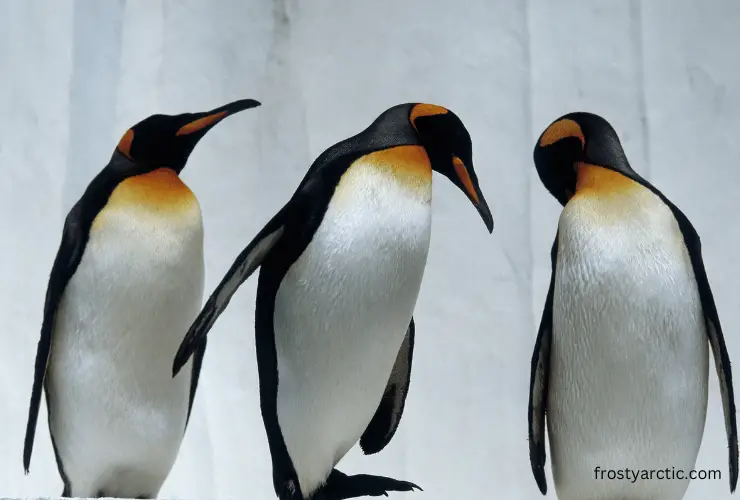
Their lifespan can vary based on factors such as diet, habitat, and exposure to predators.
Fun Fact: King penguins live in sub-Antarctic regions, where they feed primarily on fish and squid. ~ WWF
They are known for their striking appearance, with distinctive orange necks and yellow head feathers.
How Long Do Rockhopper Penguins Live?
Rockhopper penguins have a lifespan of around 15 to 20 years in the wild.
These penguins are known for their distinctive red eyes and spiky yellow crest, and they live in rocky coastal areas of the Southern Hemisphere.
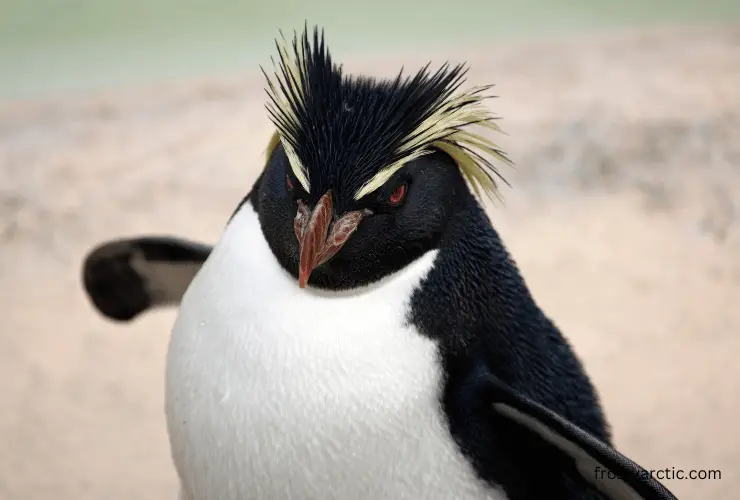
Rockhopper penguins feed on krill, squid, and small fish, and their populations are influenced by factors such as habitat degradation, fishing, and climate change.
How Long Do Gentoo Penguins Live?
Gentoo penguins, with their distinctive bright orange beak and feet, have a lifespan of around 15 to 20 years in the wild.
These penguins are known for their agility and speed, and they can swim up to 22 miles per hour in search of food.
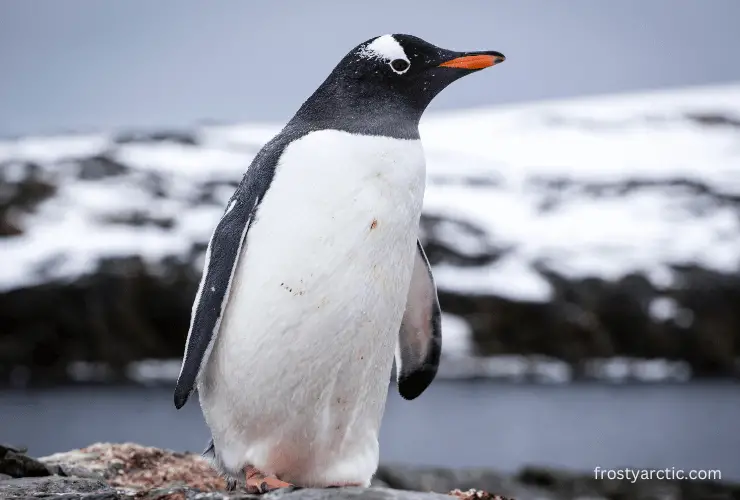
Gentoo penguins feed on krill, squid, and small fish, and they are found in sub-Antarctic and Antarctic regions. Populations of gentoo penguins are influenced by factors such as habitat loss, predation, and changes in the food supply.
Gentoo penguins are considered a species of least concern by the International Union for Conservation of Nature (IUCN), but their populations are monitored as a way of tracking the health of the Antarctic ecosystem.
How Long Do Adelie Penguins Live?
Adelie penguins, a species native to Antarctica, have a lifespan of around 10 to 15 years in the wild.
These penguins are known for their distinctive black head and white belly, and they feed on krill, squid, and small fish.
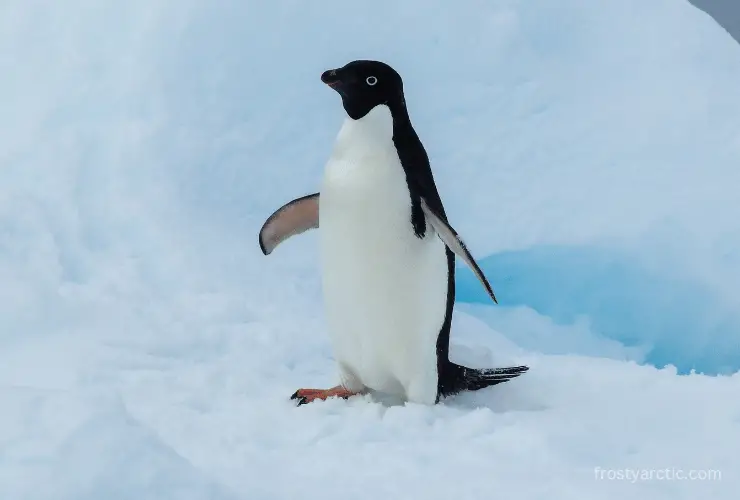
Adelie penguins are one of the most abundant penguin species, but their populations are influenced by factors such as changes in the food supply, habitat degradation, and predation.
Changes in their populations or breeding success can provide insight into the impact of human activities and climate change on the region.
How Long Do Fairy Penguins Live?
Fairy penguins, also known as Little penguins, are the smallest species of penguin and have a lifespan of around 5 to 8 years in the wild.
These penguins are found along the southern and southeastern coasts of Australia, as well as in New Zealand. Fairy penguins feed on small fish and squid and are active at night, making them difficult to observe.
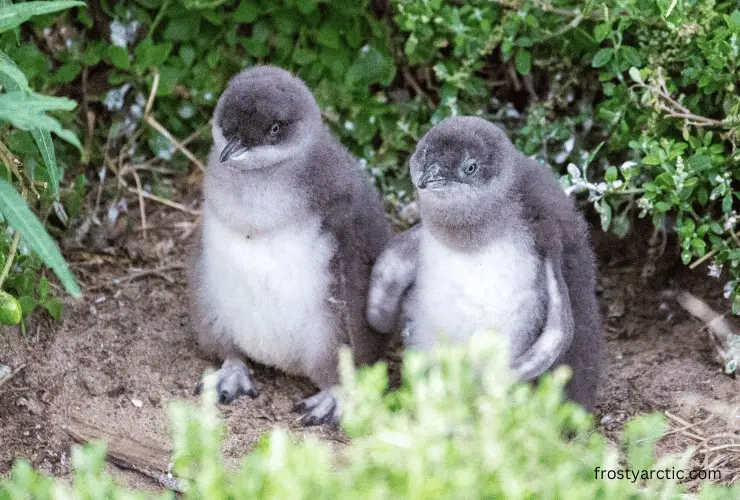
Despite their small size, fairy penguins play an important role in their ecosystem as both predators and prey. They are also a popular attraction for tourists, who come to see them waddle ashore and return to their nests.
However, fairy penguin populations are declining due to habitat loss, predation by introduced species, and changes in the food supply. Conservation efforts are underway to protect these tiny birds and their habitats. ~ WWF
How Long Does a Jackass Penguin Live?
African penguins, also known as jackass penguins, have a lifespan of around 10 to 20 years in the wild.
They are native to the southwestern coast of Africa and are known for their distinctive braying call, which resembles the sound of a donkey. Jackass penguins feed on small fish and squid.
In recent decades, the populations of jackass penguins have declined dramatically due to these and other threats. They are now considered a threatened species and are protected under international law.
How Long Does a Baby Penguin Live?
The lifespan of a baby penguin, also known as a chick, varies depending on the species and environmental conditions.
In general, baby penguins face many challenges in their first year of life, including predation by birds and other animals, exposure to harsh weather conditions, and competition for food.
In some species, such as Adelie penguins, the average chick lifespan is around 3 to 4 months, while in others, such as emperor penguins, chicks can survive for up to 8 months before fledging.
The survival rate of baby penguins can be influenced by factors such as food availability, population density, and the presence of predators.
Despite the challenges they face, baby penguins play an important role in the survival of their species, as they represent the next generation of breeding adults. ~ The MarineBio Conservation Society
How Long Do Penguins Live in Captivity?
On average, penguins that are kept in captivity have a lifespan of about 20 to 25 years. However, this varies depending on species and living conditions.
The emperor penguin, for example, can live up to 20 years in the wild, but in zoos, they can survive up to 25 years.
Adequate diet, proper medical care, and suitable living conditions can all contribute to a longer life span for captive penguins.
It’s important for zoos to provide an environment that closely mimics the penguins’ natural habitat to ensure their well-being and longevity.
How Old Is the Oldest Penguin?
The oldest recorded penguin in the wild was a banded Adelie Penguin named Granddad, who lived to be at least 38 years old. Granddad was banded in 1972 and re-sighted in 2010 on the Mawson Coast in Antarctica.
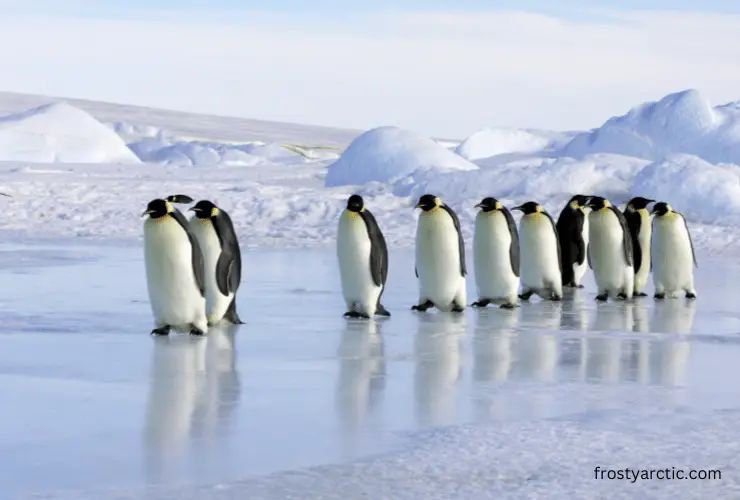
This longevity is an exceptional case, as the average lifespan of Adelie Penguins in the wild is around 20 years.
The longest-lived captive penguin was a female Macaroni Penguin named Sally, who lived to be over 34 years old.
How Do Most Penguins Die: Most Common Cause of Penguin Death
Penguins can face various threats and challenges that can lead to their death, both in the wild and in captivity.
The most common causes of death in the wild include starvation, predation, disease, and environmental changes.
Penguins feed mainly on fish and krill, and their survival depends on the availability of these food sources. A decline in the population of these food sources due to overfishing or climate change can lead to starvation.
Penguins are also vulnerable to predation by seals, sea lions, and gulls, especially when they are molting or incubating eggs.
Disease outbreaks can also take a toll on penguin populations, particularly in overcrowded colonies.
Environmental changes such as oil spills, plastic pollution, and loss of habitat due to human activities can also harm penguins and cause death.
In captivity, the leading cause of death is often old age, but improper diet, lack of exercise, and disease can also shorten their lifespan.
Note: It’s essential to provide captive penguins with a suitable diet, living conditions, and veterinary care to ensure their health and well-being. ~ World Atlas
Life Cycle of a Penguin
The life cycle of a penguin typically begins with the laying of one to two eggs by the female.
The male and female take turns incubating the eggs for about one to two months, after which the eggs hatch into chicks.
Both parents care for and feed the chicks, which grow rapidly and molt into their juvenile plumage within a few months.
Juvenile penguins typically leave the nest to venture into the ocean and develop their fishing skills.
Once they reach maturity, usually around 3-5 years, penguins form breeding colonies and engage in mating rituals. After mating, the female lays eggs, and the cycle begins anew.
How Long Do Penguins Live Without Food?
Penguins can survive without food for a limited period, typically around 2-3 weeks. This is a stressful and difficult time for them, and they can quickly become weak and vulnerable.
During fasting, penguins rely on stored energy reserves, primarily fat, to survive.
Fasting is a common phenomenon among penguins and is often seen during the molting process or while they are incubating eggs.
It is important to note that prolonged fasting can have serious consequences for penguins, such as reduced breeding success, weakened immune systems, and increased susceptibility to disease.
Impact of Climate Change on Penguins’ lifestyle
Climate change has a significant impact on the lifestyle and survival of penguins.
As ocean temperatures rise, it affects the distribution and abundance of the penguins’ food sources, such as krill and small fish.
Changes in sea ice can also make it more challenging for penguins to find food and breed successfully.
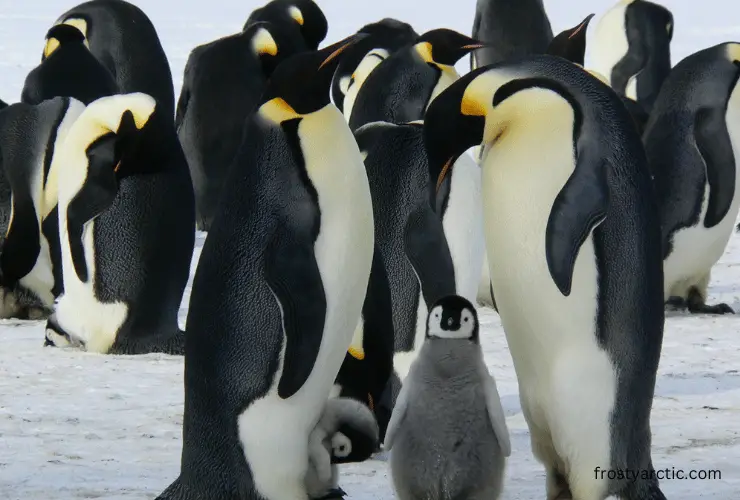
Some penguin populations are vulnerable to the effects of sea-level rise and loss of breeding habitat.
Additionally, penguins face new threats from rising temperatures and changes in weather patterns, including increased exposure to heat stress, disease, and predation.
Climate change also affects the timing of breeding and the arrival of food, which can lead to imbalances in the ecosystem and harm penguin populations.
FAQs
What is the max age of a penguin?
The maximum lifespan of a penguin varies depending on the species, but it can range from 20 to 25 years in the wild and captivity.
How old do king penguins live?
King Penguins have a lifespan of around 15-20 years in the wild, and they can live up to 25 years in captivity.
Can penguins live in hot climates?
No, penguins cannot live in hot climates. Penguins are adapted to cold temperatures and live in cold regions such as Antarctica, the sub-Antarctic islands, and the southern hemisphere.
Where do most penguins live?
Most penguins live in the Southern Hemisphere, specifically in regions around Antarctica and the sub-Antarctic islands. Some penguin species, such as the Galapagos Penguin, African Penguin, and Humboldt Penguins, live in more temperate climates near the equator.
Conclusion
In conclusion, penguins are fascinating birds that are well adapted to their cold marine environments in the Southern Hemisphere.
They have several physical adaptations that help them survive in their habitat, such as dense feathers and a layer of fat to keep them warm.
Overall, penguins play a crucial role in their ecosystem and are important indicators of the health of our oceans.

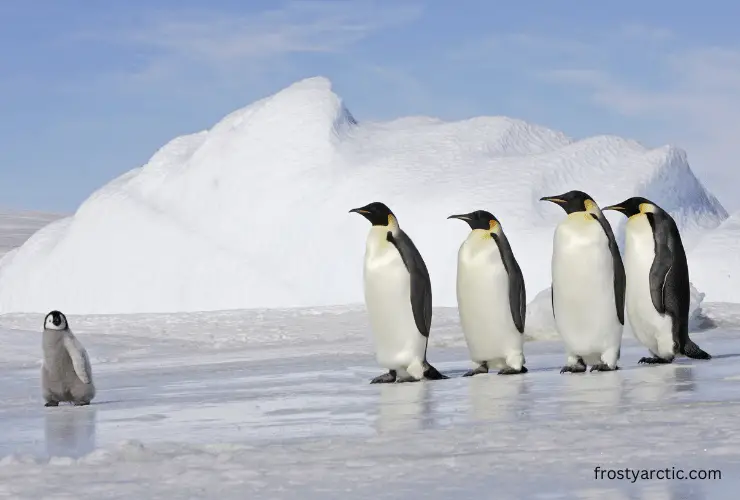

7 thoughts on “How Long Does a Penguin Live? [Lifespan Explained]”